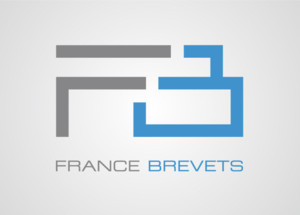Mobile internet devices have rapidly become a staple of 21st Century life, and the significance of mobile connectivity for Hispanic consumers in particular cannot be denied.
Threats to the availability of mobile internet access via patent trolls – entities that hold patents they do not use except for extracting fees from others for supposed infringement – deserve the congressional attention they are receiving. But so too do government sponsored patent trolls (GSPTs) – similar, non-practicing entities subsidized by governments – because they also pose a threat to mobile access.
Mobile access to the Internet is often taken for granted, but the reality is that there are a large percentage of people who depend on it entirely. Their access to the Internet is limited to connectivity through towers because tough economic conditions are already stretching family budgets thinner than ever and WiFi at home may not be an economic reality right now.
The role of intellectual property in the wireless broadband access and handheld device markets has received increasing attention over the past few years. Technology companies, both big and small, have become entangled in lawsuits both with rival companies and with patent trolls—sometimes more politely referred to as Patent Assertion Entities (PAEs). The patent trolling problem and potential legislative solutions have drawn considerable attention from the press and lawmakers nationwide, yet GSPTs continue to fly under the radar.
These entities, either partially or fully supported by foreign governments, acquire patents with the intent of using them to litigate in favor of their native companies’ business interests. Essentially, they are traditional patent trolls with the regulatory muscle and capital of government resources behind them. These GSPTs have popped up in France, Japan, Taiwan, and South Korea, and are already commencing litigation and infringement claims by way of their GSPTs in courts around the world.
For instance, France Brevets, the troll backed by the French government has sued handheld device makers HTC and LG in the notoriously patent troll friendly Texas Eastern Court district. While the case is still ongoing, the ramifications are clear. When companies are forced to invest significant funds into resolving often frivolous lawsuits from trolls with virtually unlimited resources, then consumers see higher prices and slowed innovation.
But the companies in the crosshairs of these GSPTs have begun to fight back. A complaint was filed against France Brevets in U.S. District Court for the Northern District of California in March by NXP Semiconductors USA. The complaint explains that NFCT, a subsidy of France Brevets, “has no meaningful assets” other than the patents at issue, and “conducts no business other than the filing of one or more lawsuits regarding infringement” of the patents. Further, the complaint states that NFCT was organized in Marshall, Texas at the behest of France Brevets for the sole purpose of establishing the aforementioned trolling friendly Eastern District of Texas as the forum for the France Brevets infringement claim.
Clearly GSPTs pose a threat for all users of technology where broadband access is paramount. And the threat is greater for traditionally underserved communities, who heavily rely on smartphone handsets for Internet access and are left to pay a disproportionate majority of the bill.
Statistics indisputably illustrate that Latinos, for example, are far more likely than whites to access the Internet primarily through a smartphone rather than a Wi-Fi or broadband connection. Three out of five Hispanic mobile internet users in Pew’s survey said they mostly went online via their mobile phone. Ensuring the ease of affordable access to mobile technologies like smartphones is crucial for bridging the digital divide between those who enjoy Wi-Fi throughout the day and those who cannot afford it through a home connection.
France Brevets and its foreign government controlled trolling cohorts erect a dangerous barrier in the battle to ensure broadband connectivity for all consumers in the modern economy. Government controlled trolls also create competitive concerns, because governments who have an interest in asserting patents justifiably have their objectivity questioned with regards to the regulation of the intellectual property process.
If the abusive actions of entities supported by the powerful fists of foreign governments are successful, all consumers stand to lose. Internet access is already a crucial factor for creating success in the modern global economy, and the severe impairment of mobile internet access would be a terrible obstacle to have to overcome.

